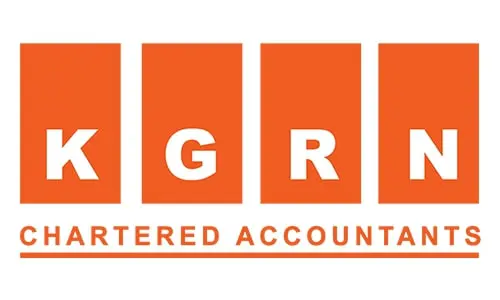Business Valuation methods can be defined as the method by which the economic worth of a business can be valued. Business valuation calculations typically include the worth of your equipment, inventory, property, liquid assets, and anything else of economic value that your company owns. Other factors that might come in this arena are management structure, projected earnings, share price, revenue and more.
Common Understanding:
- Business valuation is the process of determining the economic worth of a business or a business unit. This approach can be utilized for a variety of reasons, including establishing partner ownership, taxation, divorce proceedings, and determining the fair value for the purpose of sale.
- There are numerous methods for valuing a business, including analyzing its earnings, book value, comparisons with competitors, and more. The ultimate goal of business valuation is to establish a fair market price that accurately reflects the company’s true worth.
There are numerous reasons why a business may undergo an evaluation in Dubai, including the following:
- Selling or buying a company is a reason, for business valuation in Dubai. Business owners often want to know the value of their company before deciding to sell and potential buyers are interested in understanding the market value of the business.
- Business valuation is also necessary when two or more companies merge or form a venture in Dubai. It helps determine the worth of each business involved and determines how equity each partner should hold in the formed entity.
- When seeking funding businesses may require a valuation. Lenders often need to evaluate the amount and terms of the loan they can offer so having an accurate business valuation is crucial.
- Tax purposes are another situation where business valuation comes into play. In Dubai businesses have to pay income and property taxes and having a valuation helps calculate the tax burden accurately.
- In matters like shareholder disputes, divorce settlements or breach of contract cases business valuation is frequently used. It aids in determining the value of a company. Establishes damages that may be awarded.
Additionally performing valuations can be beneficial for business owners, in Dubai as it informs their strategic planning processes.
Recognizing the value of a company empowers its proprietors to make informed choices regarding growth, expansion and divestment. In essence the evaluation of businesses, in Dubai is a process that grants organizations the ability to make decisions and allows investors and stakeholders to grasp a companys true value.
Following are the methods for Business Valuation:
1. Market Value Method
Under this method worth of a business is determined by comparing it to similar businesses that was sold recently. This method can be used for businesses that can access sufficient data from the market competitors. Hence this method cannot be used for small businesses like sole proprietorships.
Major Advantages of this method are:
- It is straightforward and involves simple calculations
- The data used for the purpose of calculation is real and public
- It is not dependent on subjective forecasts
Disadvantages of the same are:
- It is difficult to identify transactions or companies that are comparable.
- It is rigid compared to other methods
- The method raises the question on how much data is available and how good the data is
2. Asset Based Valuation Method:
As ṭhe name suggests, this type of approach considers the net of asset value and value of its total liabilities. Assets are evealuate and the fair market value is obtained.
3. ROI Based Valuation Method:
Return on Investment method commonly known as ROI Method evaluates the value of your company’s profit and what kind of investment can be made in the business.
ROI = Current Value of Investment – Cost of Investment / Cost of Investment
A good ROI will depend on factors such as the risk tolerance of the investor and the time required for the investment to generate return. All else being equal, investors who are more risk – averse will likely accept lower ROIs in exchange of taking less risk. Likewise, investments that take longer to pay off will generally require a higher ROI in order to be attractive to investors.
4. Discound Cash Flow Method:
The discounted cash flow method values business based on its projected cash flow, adjusted (discounted) to its present value. The DCF method can be particularly useful if your profits are not expected to remain consistent in the future. This method takes the net future cash flows of the business and discount it to the present-day values. This helps to understand how much money the business can expect to make in its future.
5. Historical Earnings Valuation Method:
Capitalization of earnings valuation method, the multiple of earnings valuation method also determines the business’s value by its potential to earn in the future. The ability of a business to earn income, its potential to repay the debt and capitalization of its earnings determine its current value. It may vary according to industry, economic climate and other factors.
6. Relative Valuation:
A relative valuation model compares a firm’s value to that of its competitors to determine the firm’s financial worth. It helps to ascertain the value of our business assets on comparison with competitors or industry peers.
7. Future Maintainable Earning Valuation:
It is a simplified version of discounted cash flow. This method can be used if the business is expecting profits to remain stable in the foreseeable future. This method evaluates expenses, profits, sales, purchases etc. for at least 3 preceding financial years.
8. Book Value Method:
This method is very simple. Under this method value of a business is considered to be the net of shareholders equity and its liabilities as per the financial statements. This approach may be useful if the business is having less profits, but valuable assets.
9. Liquidation Method:
It is an ascertainment that how much a company is worth after assets are liquidated to pay of its liabilities or debts.
FAQ’s: Business Valuation Methods for Small Business
What are the common business valuation methods for small businesses?
There are several business valuation methods for small businesses, including asset-based valuation, income-based valuation, and market-based valuation. Asset-based valuation determines the value of a company’s assets minus liabilities, income-based valuation assesses a company’s future income and cash flow, while market-based valuation compares the company’s value to similar companies in the industry.
How do I choose the appropriate valuation method for my small business?
Choosing the appropriate valuation method for your small business depends on several factors such as the industry, the company’s financial situation, and the purpose of the valuation. If your business has significant assets, an asset-based valuation method may be appropriate, while if the company has a stable and predictable cash flow, an income-based valuation may be more appropriate.
What are the key factors that affect the value of a small business?
The value of a small business is influenced by several factors such as the company’s financial history, its growth potential, market demand, competition, and economic conditions. Additionally, the company’s assets, liabilities, and cash flow also play a significant role in determining its value.
Can I conduct a business valuation on my own, or do I need a professional?
While it is possible to conduct a business valuation on your own, it is recommended that you seek the services of a professional business valuator. A professional business valuator can provide you with an accurate and unbiased valuation of your company using standardized valuation methods and techniques.
How can I use the results of a business valuation to improve my small business?
The results of a business valuation can help you identify areas where your company can improve, such as reducing expenses, increasing revenue, or optimizing the use of your assets. Additionally, it can also help you make informed decisions when it comes to mergers, acquisitions, or selling your business.
Conclusion
In conclusion, business valuation is an important process for any business, especially SMEs looking to grow and expand in Dubai’s competitive market. With KGRN’s business valuation services, you can gain a clear understanding of your business’s worth and make informed decisions about investment, funding, and growth strategies. Our team of experts is committed to providing the highest quality service and ensuring your success. So why wait? Contact KGRN today and let us help you achieve your business goals.
Contact our professionals for more information regarding our services and areas of expertise in the UAE. Business Valuation Services in Dubai: For enquiries call @ +971 45 570 204 / Email Us : [email protected]







